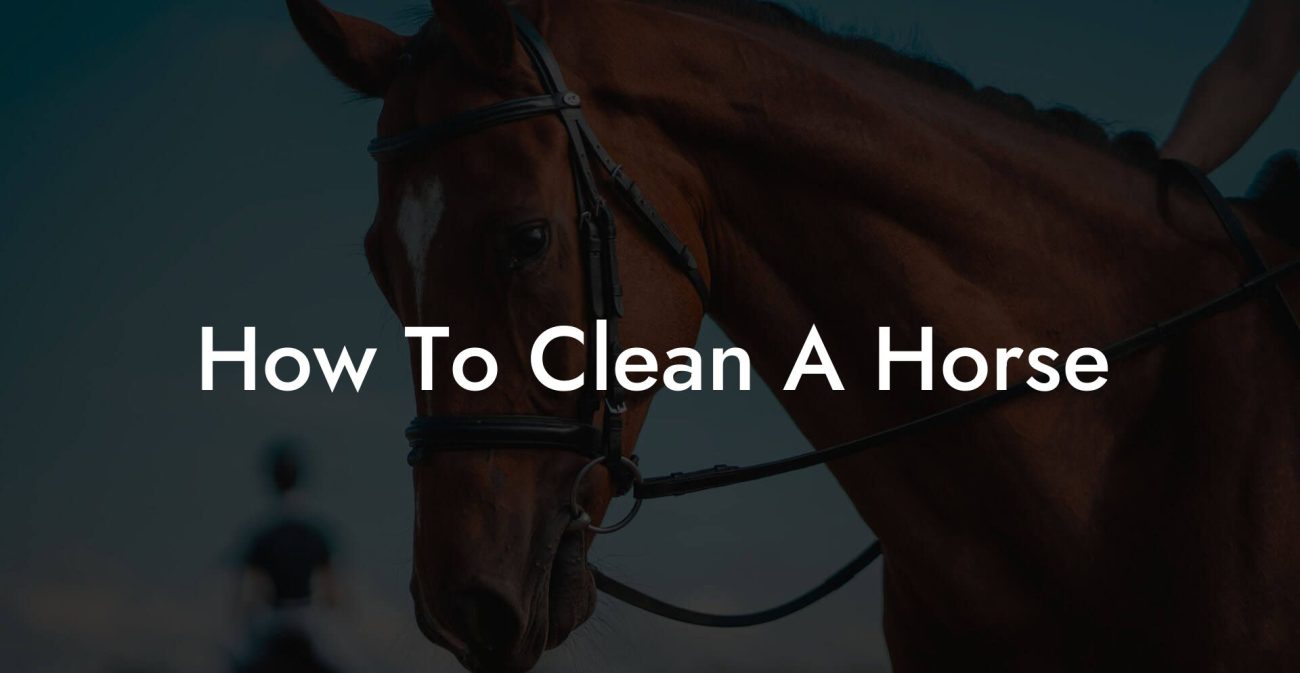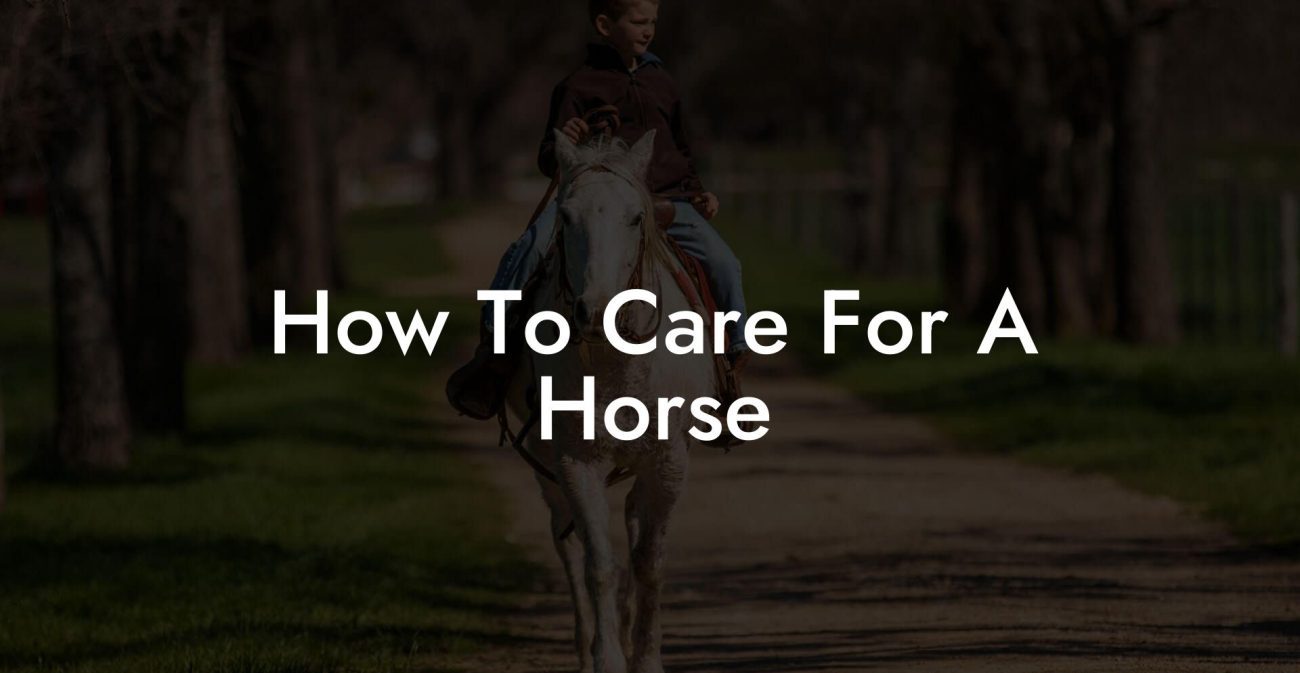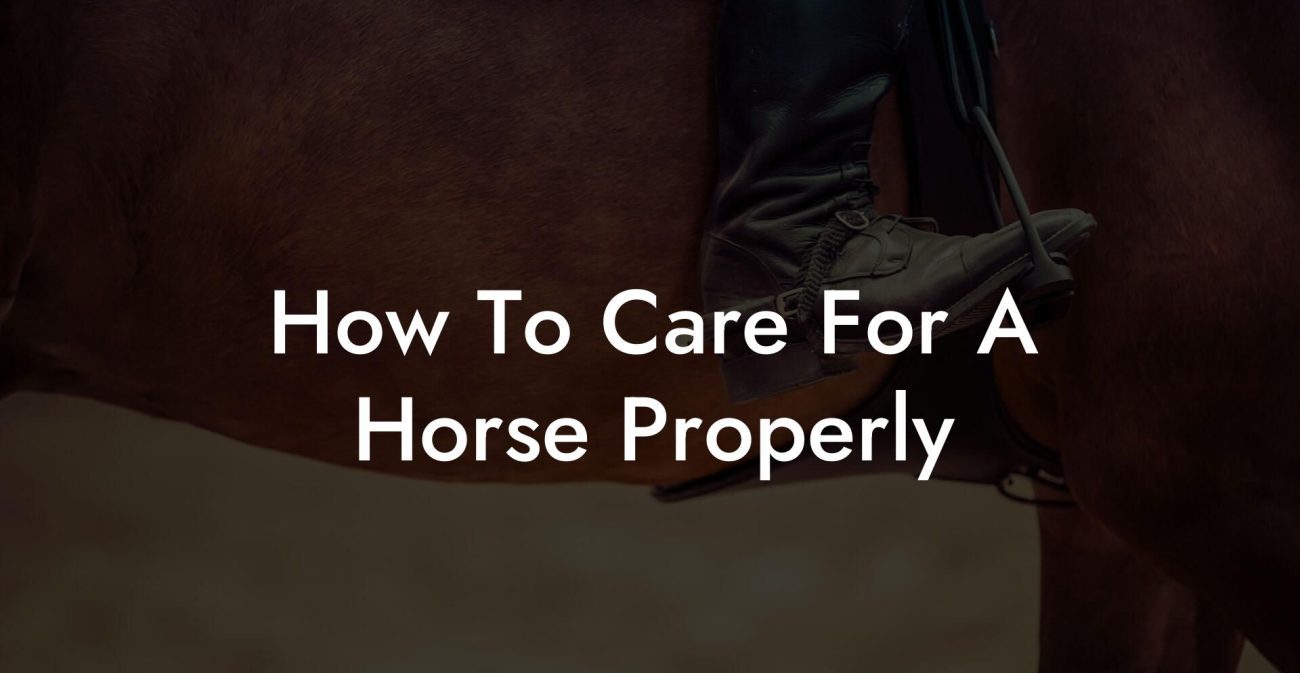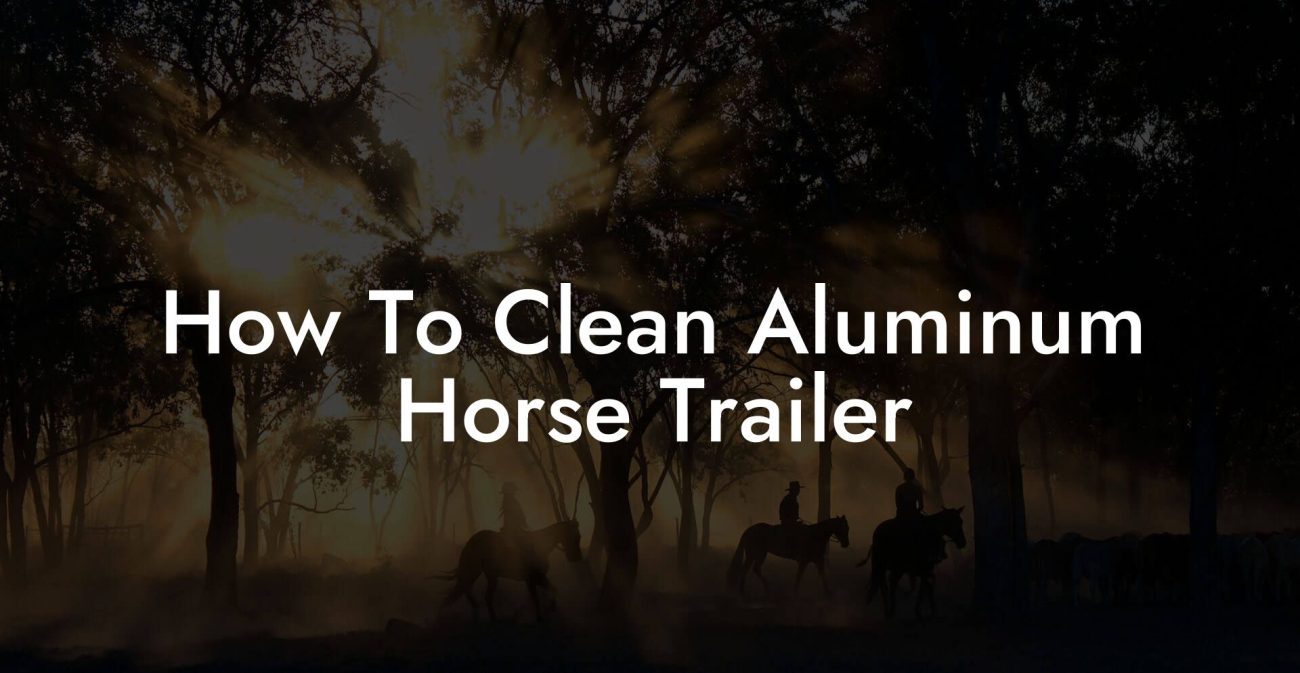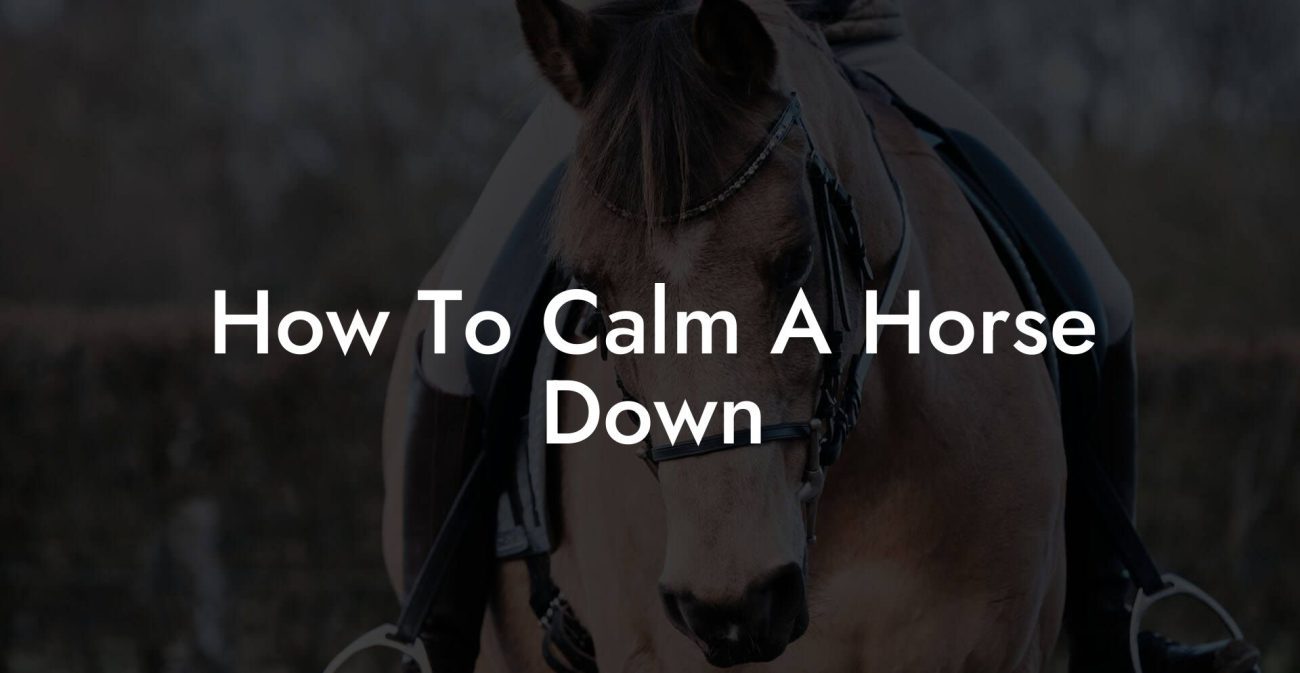Picture your equine friend in a sun-soaked paddock, ears perked and eyes sparkling with mischief, all while you wonder if they could really survive a marathon without their favorite refreshment: water. Sounds wild, right? In an era when Gen Z and millennials are all about eco-friendly hacks and next-level lifestyle choices, understanding the ins and outs of equine hydration isn’t just for the old-school barn enthusiasts, it’s essential for every horse lover who wants to keep their majestic buddy prancing at their best.
Quick Links to Useful Sections
- Why Water is the Ultimate MVP for Your Horse
- How Horses Handle Water: The Science Behind the Sip
- Understanding Hydration: Hard Facts & Figures
- The Dangers of Dehydration: What Happens When a Horse Runs on Empty
- Survival Without Water: Myth or Reality?
- Signs Your Horse May Be Dehydrated
- Tips for Keeping Your Horse Hydrated
- Provide an Abundant Water Supply
- Temperature Matters
- Integrate Hydrating Foods
- Encourage Drinking with Placement
- Regularly Monitor and Record
- Education and Routine
- Case Studies: Horses That Lived to Tell the Tale
- Case Study 1: Star Runner’s Revival
- Case Study 2: The Resilient Workhorse
- Case Study 3: Overcoming the Odds in Extreme Conditions
- The Role of Environment and Diet in Water Consumption
- Resources and Community Support: Your Next Steps
- FAQ: How Long Can a Horse Live Without Water?
- Your Journey to a Hydrated, Happy Horse
Why Water is the Ultimate MVP for Your Horse
When it comes to maintaining a healthy horse, water isn’t just a beverage, it’s the ultimate MVP (Most Valuable Potion). Water fuels every cell in your horse’s body, supports digestion, helps regulate temperature, and maintains overall performance. Without water, even the sturdiest stallion or the most graceful mare can face dire consequences.
As we dive into the fascinating world of equine hydration, prepare to uncover some cool science, practical tips, and the harsh realities of dehydration. Whether you’re managing a farm, running a stable, or just caring for a beloved pet, knowing how water impacts your horse’s health is a game-changer.
In a world where Gen Z and millennials are hailed as the experts on sustainable living and animal care, understanding the critical role of water can transform how you care for your horse. So, let’s dive in and explore why water is the star player in your horse’s daily routine.
How Horses Handle Water: The Science Behind the Sip
Unlike some creatures that can endure long periods without a drink, horses are built for a lifestyle that demands regular hydration. Their bodies are fine-tuned for the grazing life, with water requirements that reflect their continuous need for nourishment and energy.
Horses have evolved to be ruminant grazers, meaning they spend a significant part of their day munching on grass and hay, which isn’t exactly high in water content. Thus, they rely on a steady supply of water to complement their natural, fiber-rich diet. Their large gastrointestinal tracts require water to effectively digest roughage and extract vital nutrients.
The equine digestive system is a marvel of evolution, complete with a specialized hindgut that ferments fibrous material. But here’s the kicker: this fermentation process produces a ton of heat and can lead to water loss if not properly balanced with adequate hydration. In simpler terms, a horse running on empty water-wise might feel like you’re trying to sprint a marathon on a half-charged battery.
From a cellular perspective, water is the transport medium for nutrients and waste products. It helps maintain blood volume and ensures that all the chemical reactions essential for life run smoothly. The moment dehydration sets in, every system in your horse’s body begins to falter, making water nothing short of a miracle drink.
Understanding Hydration: Hard Facts & Figures
Let’s geek out a little. On average, an adult horse drinks between 5 to 10 gallons of water daily, depending on factors like activity level, weather conditions, diet, and overall health. And get this, during hot weather or strenuous exercise, that number can skyrocket as the horse works to cool itself down.
For milder days and well-fed horses, the lower end of the spectrum might suffice, but in the scorching summer or after vigorous activity, every drop counts. Consider this: a dehydrated horse might start showing signs of distress after just a couple of days without water. While there are rare anecdotal instances of horses lasting longer in extreme conditions, these are the exception rather than the norm.
It’s crucial for horse owners to monitor their horse’s water consumption closely. Using water troughs with indicators or even smart water dispensers can help track intake. This way, you can ensure your horse gets the hydration they desperately need, especially when nature decides to turn up the heat.
Keyword alert: think "equine hydration," "horse water consumption," "hydration needs for horses," and "keeping horses hydrated", all essential elements for understanding why every sip counts.
The Dangers of Dehydration: What Happens When a Horse Runs on Empty
Imagine running a marathon without ever drinking water. Now, try picturing that scenario for a horse. When water is scarce, horses face a cascade of health issues that can quickly spiral out of control.
Dehydration in horses can manifest in several dangerous ways. Initially, you might notice a loss in energy levels, reduced alertness, and a general sense of lethargy. As dehydration worsens, the cardiovascular system suffers, body temperature rises uncontrollably, and the delicate balance of electrolytes gets thrown off.
More severe dehydration can lead to colic, a painful and potentially life-threatening condition caused by digestive disturbances. Colic occurs when the horse’s gut slows down or becomes blocked, leading to abdominal pain and, in worst-case scenarios, surgical emergencies.
In extreme cases, prolonged dehydration can compromise kidney function and even lead to organ failure. The bottom line? Water isn’t just a nice-to-have for your horse; it’s an absolute necessity. Without it, even the strongest horse can quickly slide from vigor to vulnerability.
Keeping an eye on your horse's water intake and being aware of the symptoms of dehydration is crucial. Check for signs like sunken eyes, dry gums, and sluggish behavior, each of which is a clear indicator that your equine companion isn’t getting enough of the good stuff.
Survival Without Water: Myth or Reality?
One of the burning questions on every horse owner’s mind is, "How long can a horse live without water?" The honest answer is that horses are not built to go without water for more than a very short period. While there have been anecdotal accounts of horses enduring extended periods of limited water, especially in extreme, arid regions, these stories are more the exception than the rule.
Scientific research and field observations agree that a horse can only survive for about two to three days without water under normal conditions. However, this timeline can be considerably shorter in hot weather or during periods of heavy exercise. A dehydrated horse rapidly loses its physical and cognitive edge, making even basic tasks challenging.
It’s important to debunk the myth that horses can "tough it out" without water. Unlike camels, which have specialized adaptations for arid environments, horses are designed to thrive on regular hydration. Teach your herd that water is their best friend, and make sure it’s always accessible.
Remember, sacrificing hydration isn’t a heroic act of endurance; it’s a recipe for disaster. So, if you ever find yourself questioning whether your horse might manage for a few days without water, know that the risks far outweigh any perceived benefits.
Keywords to keep in mind: "horse survival without water," "how long can horses go without hydration," and "equine water deprivation risks." These search terms echo the urgent need for every horse owner to prioritize hydration and avoid the pitfalls of dehydration.
Signs Your Horse May Be Dehydrated
Because preventing dehydration is always easier than treating it, being able to recognize the signs of a water-starved horse is absolutely vital. Here are the key indicators you should be on the lookout for:
- Dry Mouth and Mucous Membranes: A horse that isn’t drinking enough frequently has dry, sticky gums and a parched mouth.
- Sunken Eyes: The eyes can appear dull and sunken if a horse is suffering from dehydration.
- Lethargy: A noticeable drop in energy levels or a reluctance to move can signal that your horse is running low on water.
- Increased Heart Rate: Dehydration forces the heart to work harder, leading to an elevated pulse rate.
- Reduced Skin Elasticity: Gently pinch the skin on your horse’s neck; if it doesn’t quickly return to its normal position, dehydration might be the culprit.
- Dark-Colored Urine: Concentrated urine is a classic sign that your horse is not getting enough water.
The sooner you identify these symptoms, the quicker you can intervene and prevent a minor hydration issue from becoming a major health crisis.
Regular monitoring, especially during hot weather or periods of high activity, is crucial. Equip your stable with digital hydration trackers if you can, modern tech meets old-fashioned love for your horse!
Tips for Keeping Your Horse Hydrated
Now that we’ve covered the science and dangers of dehydration, let’s talk solutions. Here are some savvy and practical tips to help you ensure your horse always has access to plenty of clean, fresh water:
Provide an Abundant Water Supply
This might seem like a no-brainer, but always check your water troughs and buckets for cleanliness and adequate water levels. Replace stagnant water often and consider investing in automatic waterers that ensure a continuous supply.
Temperature Matters
Horses are sensitive to extreme temperatures. In hot weather, consider adding a few ice cubes or chilled water to the troughs to help keep the water cool. In winter months, use heated water systems to prevent freezing.
Integrate Hydrating Foods
Supplementing your horse’s diet with moisture-rich foods like cucumbers, apples, or specially formulated wet feeds can help boost their overall water intake naturally.
Encourage Drinking with Placement
Sometimes the placement of water sources can make a big difference. Position water troughs in shaded, comfortable areas away from feeding zones to reduce competition and encourage quieter, more relaxed drinking sessions.
Regularly Monitor and Record
Keeping a log of your horse’s daily water consumption can help you catch early signs of dehydration. Use apps, smart sensors, or simply a handwritten journal to track any unusual changes in their drinking pattern.
Education and Routine
Educate everyone in the stable, whether family members or staff, about the importance of hydration. Establish a routine check schedule to ensure that water is always at optimal levels.
These strategies not only ensure that your horse stays hydrated but also provide peace of mind knowing that you’re actively preventing any dehydration issues before they spiral out of control.
Case Studies: Horses That Lived to Tell the Tale
Sometimes the best way to understand the impact of hydration is to look at real-life examples. Below are a few case studies that highlight how proper water management made all the difference in the lives of these magnificent creatures.
Case Study 1: Star Runner’s Revival
Star Runner, a spirited seven-year-old Thoroughbred known for his lightning-fast speed on the racetrack, began displaying signs of lethargy and minor colic episodes during a particularly hot summer. His trainer noticed a dip in water consumption and quickly intervened by installing an automatic, temperature-controlled waterer in the stables. Within days, Star Runner’s energy levels rebounded, and the episodes of colic ceased. This case underscores how even the most competitive horses can suffer quickly from dehydration if their water needs are not met.
Case Study 2: The Resilient Workhorse
In a rural farming community, a dependable draft horse known as Bella was tasked with heavy work through the scorching summer months. Despite the hard labor, her caretaker made sure to set up multiple water stations along her route. Bella’s fluid balance was closely monitored, and her diet was supplemented with hydrating feeds. As a result, not only did Bella maintain her strength, she also demonstrated fewer signs of heat stress and fatigue compared to her peers. Bella’s story is a testament to how a proactive hydration strategy can keep even the most hardworking horses in peak condition.
Case Study 3: Overcoming the Odds in Extreme Conditions
In an area prone to drought, a group of horses found themselves facing prolonged periods of water scarcity. Their owner, however, combined traditional water-saving techniques with modern technology, such as installing solar-powered water pumps and creating shaded, natural water catchment areas. Through these efforts, the horses managed to maintain a basic level of hydration, although it was clear that without timely intervention, the situation could have escalated into a crisis. This case study serves as a stark reminder that while horses can sometimes adapt to harsh conditions, ensuring regular, sufficient water supply is non-negotiable.
Through these narratives, the message is clear: proactive management of water resources can not only save lives but elevate performance and well-being. In a world where every drop counts, turning water into a strategic ally is essential.
The Role of Environment and Diet in Water Consumption
While water itself is irreplaceable, the environment in which your horse lives and what it eats can greatly influence its hydration levels. A well-managed environment paired with a nutritious diet can enhance water retention and overall health.
Environmental Factors: Temperature, humidity, and even the layout of your stable can impact how much water your horse needs. In hot and dry weather, horses naturally drink more to replenish lost fluids. In contrast, a shaded and well-ventilated stable can reduce heat stress and thus lower water requirements.
Dietary Considerations: The quality of your horse’s diet plays a pivotal role in hydration. Dry hay and grain-based feeds might not provide much moisture, whereas fresh forage and specially formulated wet feeds can make a significant difference. Incorporating water-rich vegetables and fruits can also help tip the scales in favor of better hydration.
In this digital age, where transparency and detailed monitoring are expected, consider implementing smart sensors in your stable that track ambient temperature and humidity. These insights can help you optimize water supply and adjust feeding strategies accordingly. By marrying environmental management with a balanced diet, you’re not only boosting your horse’s hydration but also enhancing its overall quality of life.
Resources and Community Support: Your Next Steps
Embarking on a journey to master equine hydration doesn’t have to be a solo ride. Whether you’re a seasoned horse owner or a newbie looking to elevate your horse care game, there are plenty of resources available. Online forums, social media groups, and local equestrian clubs offer invaluable insights from fellow enthusiasts who have navigated similar challenges.
Check out expert blogs, attend webinars, and consider reaching out to your local veterinarian or equine nutritionist to fine-tune your horse’s water regimen. Many communities also host workshops and live Q&A sessions that can give you firsthand advice tailored to your situation.
For those who thrive in the DIY spirit, consider investing in smart water tracking tools that sync with your smartphone, perfect for the hyper-connected Gen Z and millennial crowd. This will not only help you optimize daily water consumption but also provide data that can be shared with your vet during regular check-ups.
Remember, an informed horse owner is a proactive horse owner. Take the plunge, gather the latest research, and join the broader community of equine care enthusiasts who are all about making sure that every gallop is fueled by proper hydration.
FAQ: How Long Can a Horse Live Without Water?
Here are some frequently asked questions that shed light on the critical issue of equine hydration and survival without water:
1. How long can a healthy horse survive without water?
Under normal conditions, a healthy horse can only survive for about two to three days without water. Factors such as weather, activity level, and overall health can shorten this period considerably.
2. What are the early signs of dehydration in horses?
Early signs include dry mouth and gums, sunken eyes, lethargy, and decreased skin elasticity. Noticing these symptoms early is vital for preventing serious complications.
3. Can hydration be increased by altering the diet?
Yes, incorporating water-rich foods and supplements can improve overall water intake and help maintain a good hydration balance.
4. How do environmental factors affect a horse’s water needs?
Hot and dry conditions significantly increase a horse’s water requirements, whereas cooler, shaded environments may help reduce excessive loss through sweat.
5. What are some practical tips for ensuring my horse stays hydrated?
Regularly monitor water sources, offer fresh and cool water throughout the day, supplement the diet with hydrating foods, and consider installing smart water dispensers to track consumption.
6. Are there any technological aids to monitor hydration levels in horses?
Absolutely, there are smart water tracking systems and sensors available that can help you monitor water consumption and environmental conditions in real-time.
7. How does dehydration affect a horse’s performance during exercise?
Dehydration can lead to early fatigue, reduced stamina, and even muscle cramps, significantly impairing a horse’s performance. It also increases the risk of colic and other health complications.
Stay ahead of dehydration by being proactive and vigilant with your horse’s water needs.
Your Journey to a Hydrated, Happy Horse
Ensuring that your horse stays hydrated is more than just a daily checklist, it’s a commitment to their overall well-being, performance, and happiness. Every thoughtful measure you take, from smart water tracking to providing varied hydrating foods, contributes to a life where your horse can thrive.
Embrace this journey with the same spirit and innovation that powers your own lifestyle. Whether you’re a lifelong equestrian or a newcomer to the world of horse care, remember that every sip of water is a step toward a healthier, more resilient companion. With tech-savvy tools, countless expert resources, and a vibrant community ready to share advice and experiences, you’re never alone in this quest for equine excellence.
From bustling city stables to remote countryside farms, the message remains the same: a well-hydrated horse is a happy horse. So next time you check on your water trough, look at it as more than just a necessity, it’s a lifeline that fuels adventure, performance, and the sheer joy of horseback riding.
Take action, educate yourself, and join the movement that’s reshaping horse care for the modern era. Your horse’s vibrant, energetic future starts with a commitment to smart hydration today.






